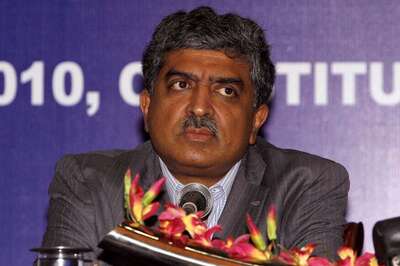
views
New Delhi: A Delhi court on Thursday took cognisance of the criminal defamation case filed by former Union Minister MJ Akbar against journalist Priya Ramani for her #MeToo allegations, which were followed by similar allegations by several other women, eventually forcing him to resign from the Cabinet post.
The additional chief metropolitan magistrate Samar Vishal has posted the case for further hearing on October 31, when Akbar’s statement will be recorded along with the statements of all witnesses.
Senior advocate Geeta Luthra, representing Akbar, referred to Priya Ramani’s tweets and the articles published based on the tweets to argue that they had caused “irreparable harm” to former minister’s reputation.
Luthra submitted that total six witnesses can be examined by the court.
"We have six witnesses but the court cannot examine all of them on October 31," Luthra told News18.
As the case began, Geeta Luthra submitted before the court that it had the jurisdiction to hear the case in Delhi.
Showing the judge the tweets by journalist Priya Ramani, Luthra argued that the mere usage of the word “predator” itself was defamatory.
Judge Vishal, who went through the tweets, asked the counsels to explain what does the line "I never named him because he didn't do anything" mean.
The counsel for MJ Akbar also explained how the reputation of the former Union Minister was tarnished by the tweets.
"My client is an Indian politician, MoS External Affairs, was elected member in 1989, 1991, has a history in journalism and an outstanding academic record," argued Luthra while also reading out the names of books authored by Akbar.
Under the law of criminal defamation, one has to prove that the defamatory statement was not only published but also read by right thinking members of the society.
Pointing out that the original tweet accusing Akbar had over 1200 likes, Luthra told the court that Akbar was “not guilty” but still had to resign as minister because of the allegations. “The tweets were picked up the likes of Washington Post and other Indian and international media organisations,” she said.
The lawyer for Akbar refused to get into the exact year of the offence as she stated that "accused has herself not divulged the date”.
On the examination of witnesses, the court clarified that all the witnesses would be examined in person and "not on affidavit”.
Akbar has approached the Patiala House Court in Delhi under Section 499 of the Indian Penal Code, terming the allegations levelled against as “false, frivolous, unjustifiable and scandalous”.
The complaint goes on to list the instances where Ramani’s allegations were made public through social media and digital media.
Akbar is insistent in the complaint that the accusations against him form part of an agenda, and that they have damaged his goodwill and reputation.
A number of women have levelled allegations of sexual misconduct against MJ Akbar, who has been the Editor of various publications including The Telegraph and The Asian Age. Apart from Ramani, the other woman journalists to recount instances of Akbar’s misconduct include Ghazala Wahab, Suparna Sharma, and Harinder Baweja.
On Wednesday, MJ Akbar had issued a statement clarifying that since the matter is sub-judice, he was resigning from the post of Union Minister of State for External Affairs.
The Editors Guild has come out in support of the women journalists for highlighting the cases of sexual harassment. The top editors’ body said the resignation of Akbar was a result of the courage shown by these women to fight for a higher principle of gender equality in the newsroom.
“We hope that Mr Akbar will also display the grace to withdraw the criminal defamation case he has filed against one of these complainants. While Mr Akbar is entitled to all legal instruments available to a citizen to seek vindication, it would be paradoxical for a veteran editor to employ the instrument of criminal defamation. More so for Mr Akbar who happens to be a former president of the Guild,” the statement by Editors Guild said.




















Comments
0 comment